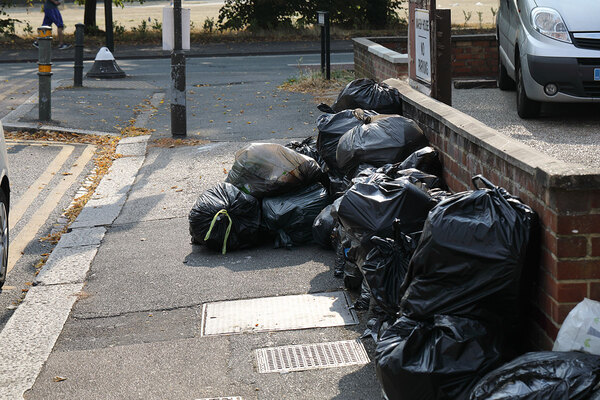You are viewing 1 of your 1 free articles
Over half of anti-social behaviour incidents left unreported, survey finds
Over half of anti-social behaviour (ASB) incidents are left unreported, with most people unhappy with the way their landlord handles complaints, a survey has found.
A survey to coincide with ASB week, commissioned by Resolve, the safety group, has found that four in 10 people think ASB will increase in their area now that lockdown measures have ceased.
Among those who have either witnessed or been a victim of ASB in the past three years, 56% did not report it to anyone.
Only 16% reported it to their council or social services and 6% to their housing association or landlord.
Of those who report ASB to a housing association or landlord, 22% were satisfied with the way it was handled and 59% were dissatisfied.
New guidance published on Monday by the Ministry for Housing, Communities and Local Government states that registered social housing providers have a responsibility to prevent ASB by keeping their neighbourhoods and communal areas under their control safe and clean.
ASB can include noisy or abusive behaviour, vandalism, graffiti, public drunkenness and fly-tipping.
Landlords are able to use both legal remedies such as civil injunctions and possession proceedings against persistent ASB, as well as non-legal solutions such as acceptable behaviour agreements, warnings and referrals to mediation.
Rebecca Bryant, chief executive of Resolve, said: “It’s time to back our communities and work together to make them safer.
“Addressing the challenges that anti-social behaviour poses is a national priority. People deserve to feel safe where they live. ASB can devastate the lives of victims and it is vitally important that it is reported to the correct people.”
According to the survey, over half (56%) of people – and 83% of those who have been a victim of ASB in the last 3 years – would like to see more action taken. Around a third of people (35%) said ASB has increased in their local area in the last three years.
One in five people questioned said that ASB has caused them to either move or consider moving home, and almost a quarter of people (23%) said it made them feel unsafe where they live.
Eddie Hughes, the housing and rough sleeping minister, said: “Anti-social behaviour is not just a crime, it is a threat to the health of our society, blighting communities and threatening people’s physical and mental health – behaviour that, if left unchecked, can easily turn into even more serious and harmful offences. There needs to be a concerted effort, not just at every tier of government, but at every level of society, to tackle it.
“We are working together across the government, the housing sector, and with other agencies like Resolve to deliver our social housing white paper – the charter for social housing residents commitment to provide victims of ASB with support and information on how to report ASB, identify practical ways to prevent further reoffending and make our communities safer. We will be making an announcement on our progress shortly.”
Sign up for our daily newsletter
Already have an account? Click here to manage your newsletters












